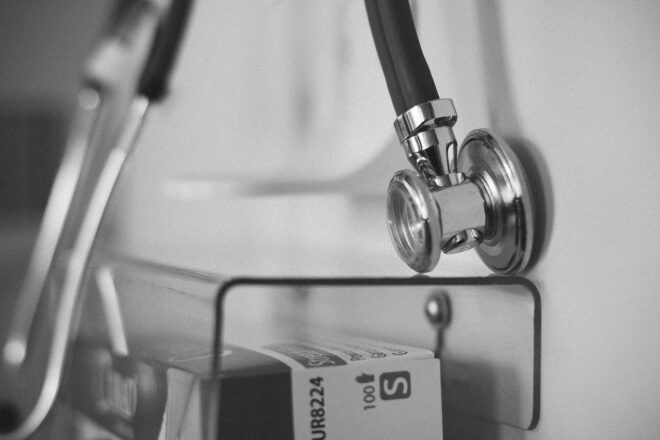As you journey through the golden years of life, being well-informed about your medications is key; and the “Medicines and You: A Guide for Older Adults,” by the U.S. Food and Drug Administration (FDA) is a must-read resource. Your body undergoes numerous changes with age, affecting how you metabolize and interact with medications—factors like fluctuations in weight, alterations of the digestive and circulation systems, and a slower functioning liver and kidneys. Moreover, you might be at a higher risk for drug interactions, wherein overlapping medications can create unwanted effects or hamper each other’s efficiency.
To counteract this, proactive health measures like routine check-ins with doctors and having candid discussions with your healthcare team about your medications, including supplements and over-the-counter drugs, are essential. recording side effects, communicating challenges you face in recognizing or remembering to take medicines, turning to pharmacists for advice, and equipping yourself with knowledge about the medication – its name, purpose, side effects or potential interactions – are paramount to optimize your health and wellbeing in your later years.
Understanding Changes in Body with Age
As we age, our bodies undergo significant changes. These changes can alter the way our bodies absorb and use medicines, which can be either beneficial or detrimental.
Impact on Medicine Absorption
Changes in the digestive system, body weight, circulation system, and slowed functioning of the liver and kidneys can all influence how a medicine is absorbed by the body. For example, an increase in body fat could cause fat-soluble medicines to stay in the body longer. Slow blood circulation, a common condition in older adults, can delay the transportation of medicines to where they’re needed in the body.
Influence on Medications Outcome
Changes in the body that come with aging can also impact the efficacy of medications. A slower metabolism, for instance, could allow medicines to accumulate in the body, heightening their effects or precipitating unwanted side effects. It’s important to remember these factors when managing your medications.
Potential Risks For Older Adults
As age advances, risks related to medication not only increase but also become more complex.
Higher Risk of Drug Interactions
The older we get, the more likely we are to be prescribed more than one medication at once. With multiple medications, the chance of drug interactions significantly increases. These interactions can cause adverse effects or reduce the effectiveness of the drugs.
Drug-Drug Interactions
Drug-drug interactions take place when two or more medicines either cause adverse effects or interfere with each other’s efficiency. These interactions can be detrimental to your well-being making medication management critical for older adults.
Interference with Efficiency of Other Drugs
Sometimes, drugs not only interact with one another but may also affect the efficiency of other drugs. A new drug could limit the effectiveness of ongoing treatment, not because they are ineffective, but because its interaction with other medicines leads to unexpected results.
Types of Medication Interactions
There are different ways medications can interact with each other or with other substances.
Drug-Condition Interactions
A pre-existing condition may make certain drugs harmful. This type of interaction, known as a drug-condition interaction, is an essential consideration while planning medical care for older people with comorbidities.
Food-Drug Interactions
Food-drug interactions occur when drugs react with food or drinks. Something as commonplace as grapefruit juice can change the way certain medications work, underscoring the importance of discussing diet restrictions with your healthcare provider.
Alcohol-Drug Interactions
Similarly, drug-alcohol interactions happen when medicine reacts with alcohol. Alcohol can either magnify the effects of a medication, leading to harm, or it could nullify its impact, rendering the medication useless.
Role of Routine Check-ups
Regular medical check-ups play a pivotal role in medication management.
Managing Drugs Efficiently
Routine check-ups provide healthcare professionals with an opportunity to monitor the effect of drugs on the body and to adjust dosages or treatments if necessary.
Open Communication with Healthcare Professionals
To make your medical care more efficient, it’s crucial to establish open communication with your healthcare professionals. Share all information about your health and any changes you may have noticed.
Importance of Communicating All Consumed Medications
Relaying information about all the medications you consume – prescription or over-the-counter – is vital.
Over-the-counter Drugs
Over-the-counter drugs, including simple pain relievers or cold medicines, can interact with your prescribed medication. Therefore, always inform your medical professional about any non-prescription drugs you’re taking.
Dietary Supplements
Similarly, dietary supplements, including vitamins, minerals, or herbal remedies, can also interfere with prescribed medication. Make sure to discuss all supplements you are taking with your healthcare professional.
Keeping Track of Medicine Side Effects
Paying attention to how your body responds to medication plays a critical role in medical care.
Helping Doctors Understand Body’s Response
Recording side effects, whether minor or major, can help doctors grasp how your body is reacting to a medication. This knowledge is essential in fine-tuning your treatment plan.
Significance of Reporting Swallowing Problems and Other Difficulties
If you experience problems swallowing drugs, or difficulties recognizing or remembering to take them, you should communicate these issues to your healthcare professional. They can suggest alternative methods or provide assistance in managing your medicines.
Role of Pharmacists in Medication Management
Pharmacists play an irreplaceable role in assisting you with medication management.
Advice on Medication Use
They offer valuable advice on the correct use of medications, which can help you manage your treatment more effectively.
Understanding Potential Interactions
Pharmacists have thorough knowledge about potential drug interactions and can provide useful insights to help you avoid harmful effects.
Assistance with Medication Schedule
Pharmacists can help organize your medication schedule, ensuring you take your drugs at the appropriate time to maintain their effectiveness.
Knowledge about Medications
Equipping yourself with information about your medications is crucial in managing your health.
Name of the Medication
Knowing the exact name of the medication prevents confusion and potential misuse.
Purpose of the Medication
Understanding the purpose of the medication enables you to appreciate the importance of adhering to the therapy.
Understanding Potential Side Effects
Knowing about possible side effects prepares you for any adverse reactions and guides you on when to seek medical help.
Need for Any Special Tests or Monitoring
Some medications may require regular testing to monitor their effectiveness or to check for side effects. Make sure you know what tests are needed and when to have them.
Understanding Interactions with Food and Lifestyle Changes
Certain medications might interact with foods, drinks, or need you to make specific lifestyle changes. Make sure you understand these requirements.
Correlation with Other Consumed Medications
If you are on multiple medications, understanding the correlation between them is crucial to prevent possible interactions.
Essential Questions to Ask When Prescribed a New Medicine
When a new medication is prescribed, don’t hesitate to ask important questions.
Understanding the Need for New Medication
Understand why this new medicine is needed, whether it’s an addition or replacement to your current treatment.
Dosage and Timing
Discuss the dosage, as well as the best times to take the medication for maximum effectiveness.
Possible Interactions with Current Medications
Ask about potential interactions with your current medications to prevent unwanted side effects.
Expected Time Frame for Results
Knowing the expected results and the time frame can help you gauge the effectiveness of the medication.
Potential Side Effects and their Management
Get information on possible side effects and what to do in case they occur.
Preventive Measures Against Medicine Issues
There are strategies to help reduce issues that can arise from medication use.
Need for Regular Monitoring and Check-ups
Regular check-ups and monitoring tests are essential to confirm that your medicines are working as intended and not causing unwanted side effects.
Importance of Honest Communication with Doctors
Honest communication with your doctor about your symptoms, concerns, and lifestyle can ensure that your drug regimen is optimized for you.
Significance of Understanding Each Medication Consumed
Take time to understand your medications: what they look like, what they’re for, potential side effects, and any special considerations. This practice opens doors for more informed discussions with your healthcare providers and proactive participation in your own healthcare.



